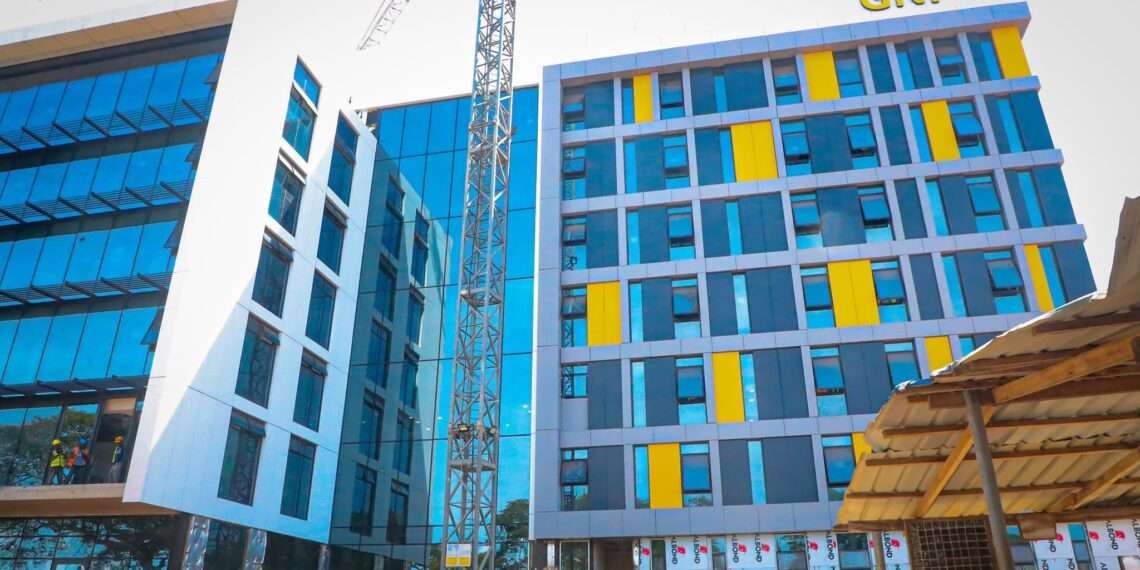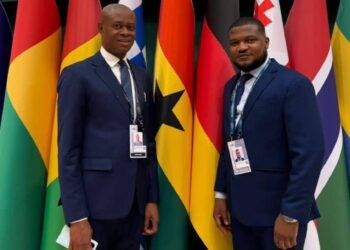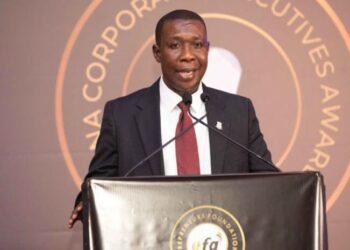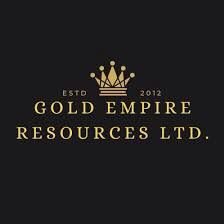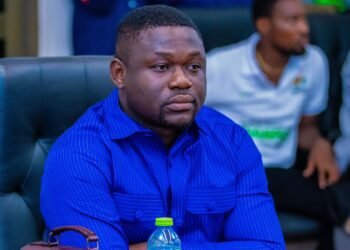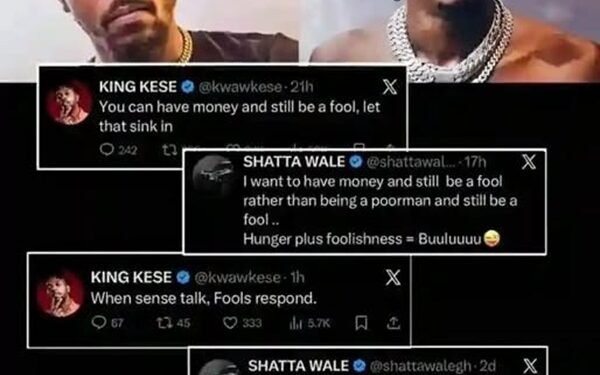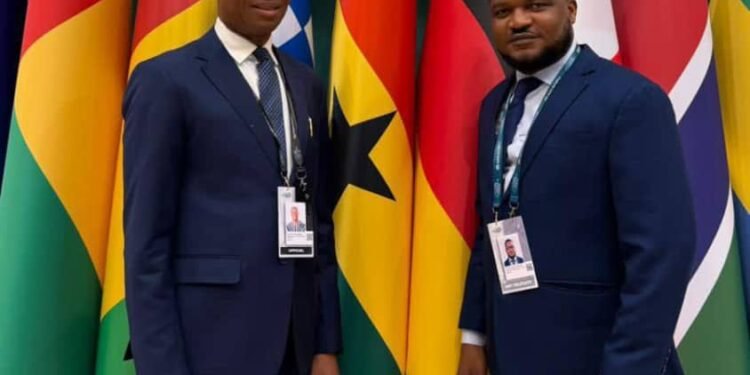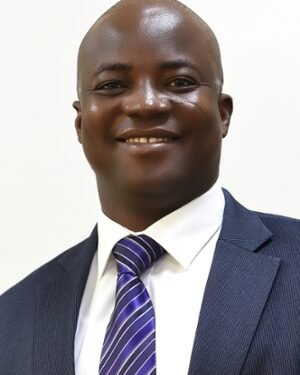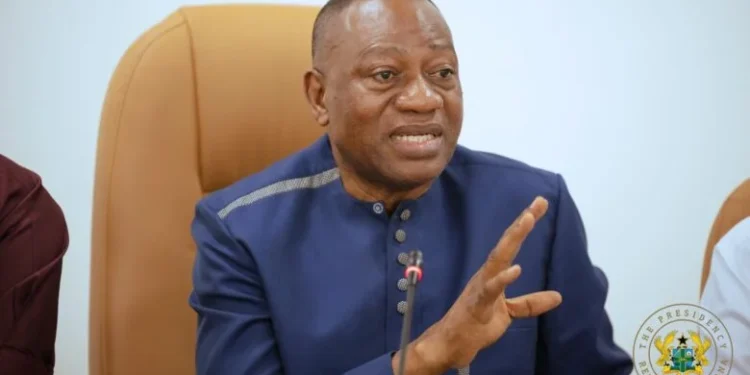The Ghana National Petroleum Corporation (GNPC) has moved to clarify the non-payment of oil revenue accruing to JOHL into the Petroleum Holding Fund, noting that it has not stolen or attempted to steal the amount of US$343 million meant for the Petroleum Holding Fund as being portrayed by a section of the media.
In a statement, the GNPC indicated that the discussions have also sought to portray that GNPC is involved in a non-transparent attempt to secure a loan agreement with Litasco without Parliamentary approval, assertion which the corporation denied.
“GNPC takes note that the reportage on the payment of JOHL lifting revenues into the PHF follows the issuance by the Public Interest and Accountability Committee (PIAC) of the “Highlights of the 2023 Semi-Annual Report of PIAC”, in which it reiterated its position that ‘…proceeds from liftings of JOHL and any other subsidiary of GNPC constitute petroleum revenue and therefore must be paid into the PHF’.
“PIAC is aware of GNPC’s disagreement with the long-held view of PIAC, and GNPC has on numerous occasions explained why revenues from petroleum activities of its subsidiaries cannot be considered as petroleum revenue that must be paid into the PHF. Consistent with the Petroleum Revenue Management Act, 2015 (Act 815, as amended by Act 893), not all petroleum revenue generated in Ghana are due to be paid into the PHF.”
GNPC
Purchase of JOHL from Anardarko Limited
The GNPC stated in the statement that it purchased JOHL from Anardarko Limited with a loan facility, which it has fully repaid back to its creditor. According to GNPC, JOHL is therefore a wholly owned subsidiary of GNPC and a separate legal entity distinct from GNPC. Section 29 of the GNPC Act (PNDCL 64) stipulates that subsidiaries of GNPC must be established under the Companies Code, 1963 (Act 179), which is now the Companies Act 2019 (act 992). JOHL’s governance and operational structure complies with Act 992, it said.
“As a commercial entity, JOHL’s operations are not covered by the ordinances of the PRMA. The PHF is due taxes and royalties from JOHL, just like any other commercial entity with interest in any of Ghana’s blocks. JOHL’s revenues are not revenues due to the State through GNPC, just because GNPC is fully owned by the State. Per Act 992 GNPC is due dividends from JOHL.
“Neither GNPC nor JOHL has stolen or made any attempt to steal US$343 million meant for the PHF as being portrayed by the media reportage; and GNPC strongly denounces all related disinformation and false news surrounding the issue. The proceeds from the sale of JOHL’s crude oil cargoes are paid into JOHL accounts, and as a sign of transparency, GNPC continues to provide information on the utilisation of these monies by JOHL to PIAC upon request.”
GNPC
GNPC established that it is important to note that GNPC’s accounts are transparently audited annually by a reputable audit firm appointed by the Auditor General, of which a final report is submitted to Parliament for further scrutiny. The accounts of all of GNPC’s subsidiaries including JOHL are also part of this comprehensive audit. Similar to all GNPC subsidiaries, the autonomous structure of JOHL is such that its management reports to a stand-alone Board.
“It needs to be reiterated that GNPC’s position of not paying JOHL’s revenues into the PHF is supported by the express written legal opinion of the Attorney General of the Republic of Ghana. Consistent with the instruction and approval of the Minister for Energy and further recommendation from Parliament, JOHL interests were assigned to GNPC Explorco. GNPC Explorco will therefore own the equity interests of JOHL in Jubilee and TEN. The dissolution of JOHL is actively being pursued.”
GNPC
Proposed Litasco Loan Facility
GNPC indicated that it has also taken note of media discussions suggesting that the company has secretly contracted a loan facility with Litasco without seeking parliamentary approval. This information is not accurate.
It explained that the Facility currently under negotiation is not a new loan by GNPC or the Government of Ghana (GoG). Instead, it is a re-financing arrangement for an existing debt that is incumbent upon ECG and the Government of Ghana to settle, with GNPC as counterparty. The purpose of this arrangement is to ensure the uninterrupted supply of power to the country.
On the the Karpowership Arrangement, the GNPC said in 2014, during a period of protracted power outages in Ghana, the Government of Ghana (GoG) engaged Karpowership, a Turkish-based company, to provide electricity within the country. Karpowership entered into a power purchase agreement (PPA) with the Electricity Company of Ghana (ECG) to supply power. A critical precondition to this agreement was the obligation for ECG to post a total of US$179 million in bank guarantees in favour of Karpowership. These guarantees, it said were a necessary step to enable Karpowership to reach its final investment decision (FID) and to initiate operations in Ghana.
GNPC’s decision to participate in the Karpowership arrangement was primarily a commercial one, driven by Karpowership’s capacity to utilize natural gas from the Sankofa-Gye-Nyame Field. Up until the relocation of Karpowership to the Western Region, GNPC incurred substantial costs in fulfilling its take-or-pay commitments to the OCTP Contractor party. The loans currently targeted for refinancing are the legacy debts accrued by ECG and the Government of Ghana.
GNPC averred that it is actively working on finalizing the detailed terms of the loan agreement with Litasco. “Once these negotiations are completed, the final negotiated terms will be reviewed by the GNPC Board, the Minister for Energy, and the Minister for Finance. The final documents will then be submitted to Parliament for consideration”.
GNPC, meanwhile, said it is committed to maintaining transparency in this process and will ensure that Parliament is made aware of the final detailed negotiated terms before the execution of any agreements.
READ ALSO: QNET Launches Financial Literacy Programme FinGreen

